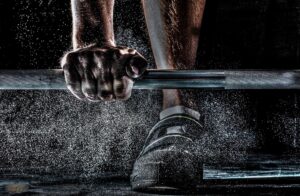When it comes to building muscle, one of the most common questions people ask is, “How much protein should I consume?” The answer isn’t a one-size-fits-all solution; it’s a highly individualized process that depends on your goals, timeframe, and personal factors. That’s where a knowledgeable coach, like myself, can make a significant difference in your muscle growth journey.
The Protein-Packed Puzzle:
We understand that each individual’s protein needs vary based on factors like age, gender, activity level, and overall goals. Before getting into specific numbers, it’s crucial to recognize that protein plays a vital role in muscle growth and repair. When you start resistance training, your muscles undergo stress and damage, and protein helps repair and build them back stronger.
Your Unique Requirements:
Determining your ideal protein intake begins with setting clear goals. If you want to gain muscle, lose fat, or both, your protein needs will differ. Let’s break it down:
- Muscle Growth: For individuals primarily focused on muscle growth, the general guideline is to consume around 1.2 to 2.2 grams of protein per kilogram of body weight per day. As a coach, I often tailor this range to your unique needs, adjusting it as necessary based on your progress and preferences.
- Fat Loss: If your goal is to shed excess fat while preserving muscle mass, you might need a slightly higher protein intake. This helps to prevent muscle breakdown during calorie restriction. Aim for 1.6 to 2.2 grams of protein per kilogram of body weight daily.
- Combining Goals: Some people, like those participating in bodybuilding competitions, may aim to simultaneously build muscle and lose fat. In these cases, I would take a holistic approach, customizing a plan that balances your protein intake, calorie deficit, and training regimen to achieve both objectives.
Timing Matters:
It’s not just about how much protein you consume but also when you consume it. Properly timing your protein intake can maximize muscle growth. I often recommend spreading protein intake evenly throughout the day, with a focus on consuming protein-rich meals before and after your workouts. This ensures a steady supply of amino acids to support muscle recovery and growth.
Quality Over Quantity:
While hitting your protein target is essential, the source of your protein matters too. Whole food sources like lean meats, poultry, fish, dairy and eggs, provide not only protein but also essential vitamins and minerals.
Supplements like protein shakes can be convenient, especially for those with busy schedules, but they shouldn’t replace whole foods entirely. I often advise my clients to prioritize natural sources of protein for their overall health and well-being.
The Individual Journey:
Understanding that the amount of protein needed for muscle gain is a highly individualized process is crucial. I do my best to emphasize the importance of tracking your progress and making adjustments along the way. Factors such as metabolism, genetics, and lifestyle can influence your protein requirements.
Keep in mind, your timeframe will play a significant role in your growth. Building muscle is a gradual process that requires patience. As a coach I know that setting realistic expectations and maintaining consistency are key. Rushing into high protein consumption without considering these factors can lead to excess calorie intake and unwanted fat gain.
Summary:
The question of how much protein to consume for muscle gain isn’t a one-answer-fits-all scenario. It’s a personalized journey that depends on your individual factors, goals and timeframe. If you’re ready to gain muscle and burn off the unwanted fat, consider seeking the expertise of a professional who can help you reach your full potential. A good coach doesn’t just provide you with a generic protein target. They carefully assesses your individual needs, targets, and timeframe. Through continuous support and guidance, NFormed Coaching ensures that your protein intake aligns with your goals and evolves as you progress. Remember, it’s not just about the quantity of protein you consume but also the quality and timing that make all the difference in your quest for stronger, leaner muscles.





